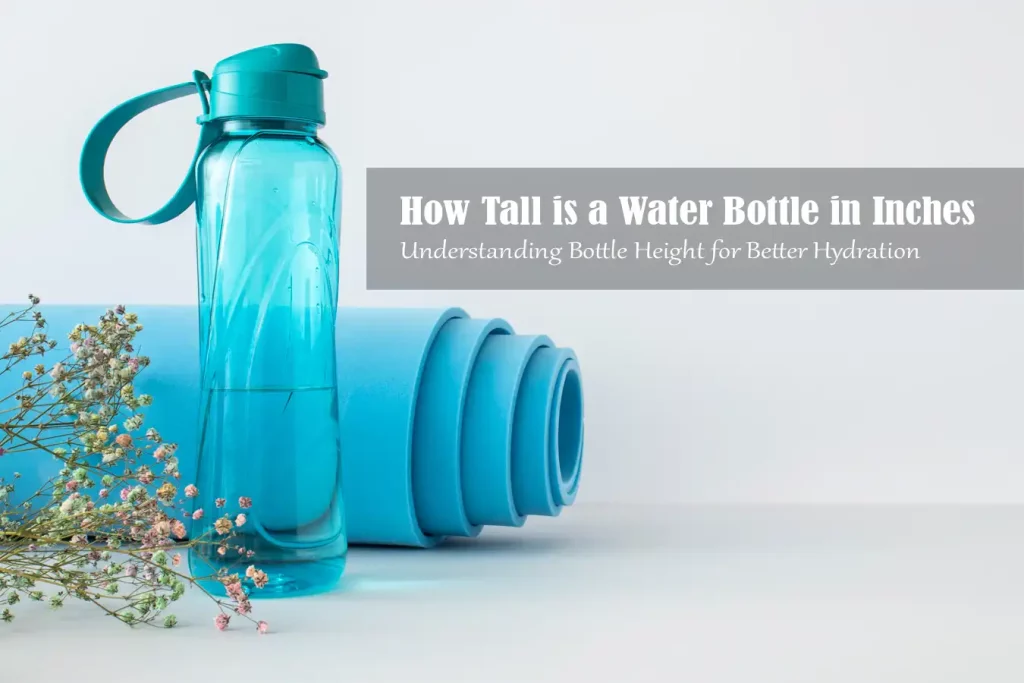“How tall is a water bottle in inches?” Ever found yourself wondering this while packing for a trip or buying a new backpack?
With so many shapes and sizes out there, it's not a one-size-fits-all answer.
But worry not, we're here to break it down for you, inch by inch.
This guide will navigate you through the varied world of water bottle dimensions.
Soon, you'll not just quench your thirst but also your curiosity.
Ready to measure up? Let's dive straight in!
Understanding Water Bottle Sizes
Have you ever looked at a water bottle and wondered, “How tall is this exactly?” It's a question that's likely popped into every hiker's mind before a long trek, every gym-goer calculating their hydration needs, or anyone who just wants to make sure that water bottle fits snuggly into their bag. It's time to quench your thirst for knowledge about water bottle sizes. Let's dive in!
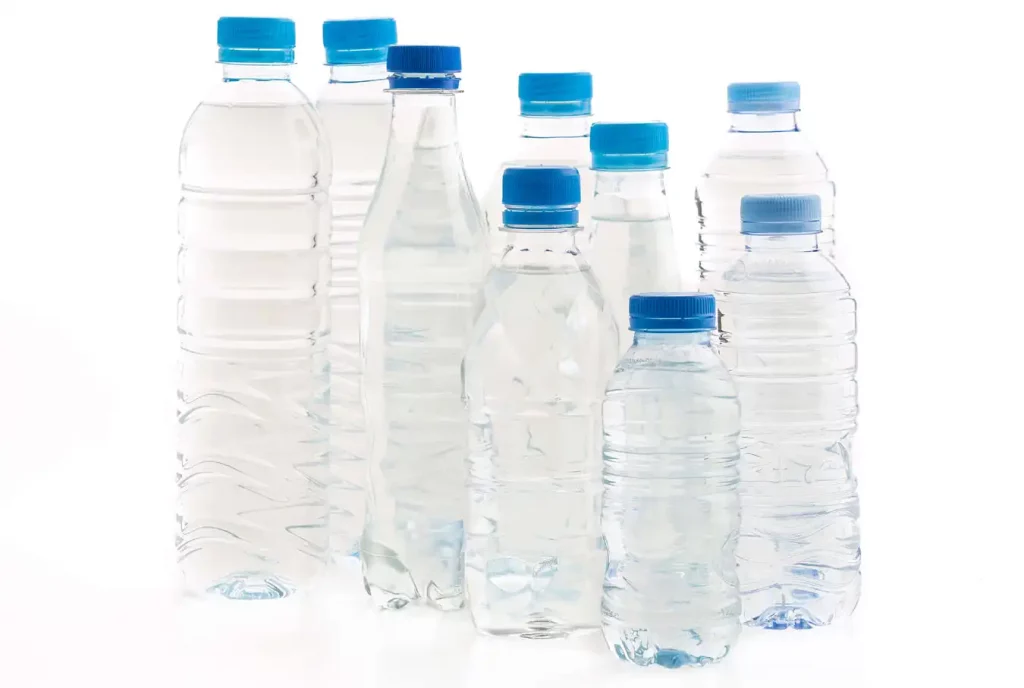
Importance of Knowing the Size of Your Water Bottle
Understanding the size of your water bottle is as important as remembering to fill it up before you leave the house. Why, you ask? Imagine you’re headed to the gym and your workout plan requires you to drink a certain amount of water. Without knowing your bottle’s size, it's like running a marathon without knowing the distance – confusing and counterproductive.
Moreover, if you're into outdoor activities, knowing your water bottle size can be crucial. Going for a hike? You’ll want a bottle that won't weigh you down but can still carry enough water to keep you hydrated. Is your water bottle going to fit in your car's cup holder or your bag's side pocket? These are things that you'll know only if you’re aware of your water bottle's size.
Standard Water Bottle Size
The height of a water bottle can vary based on its capacity. However, the standard water bottle in the US is typically around 7.5 to 10 inches tall with a capacity of 16.9 fluid ounces or 500 milliliters. This is roughly the same size as that bottle of water you’d pick up at the convenience store. This size strikes a balance between portability and the amount of water it can hold, making it a convenient choice for everyday use.
How Size is Measured
The size of a water bottle is usually measured in two ways: the volume it can hold (fluid ounces or milliliters) and its physical dimensions (height, width, or diameter). The height is measured from the base of the bottle to the top of the cap when it's closed.
Think of it like this: Picture yourself holding a ruler next to your water bottle. Starting from a flat surface, you measure from the bottom of the bottle (where it sits on the table) all the way to the very top of the cap. That’s your height!
Read more: In depth Analysis of Water Bottle Sizes in Inches
Types of Water Bottles and Their Heights
Water bottles come in a variety of sizes, shapes, and materials, each designed to meet different needs. Let's take a closer look at some popular types of water bottles and their typical heights.
1. Single-Serve Water Bottles
I. Standard Heights of Plastic Bottles
Single-serve plastic water bottles are the ones you typically see at the grocery store. The 16.9 fluid ounces or 500 milliliters version is the most common, standing at about 7.5 to 10 inches tall. They're perfect for grab-and-go convenience.
II. Standard Heights of Glass Bottles
While not as common, single-serve glass water bottles are a chic and reusable alternative. They generally hold about 16 to 20 ounces and stand around 9 to 12 inches tall.
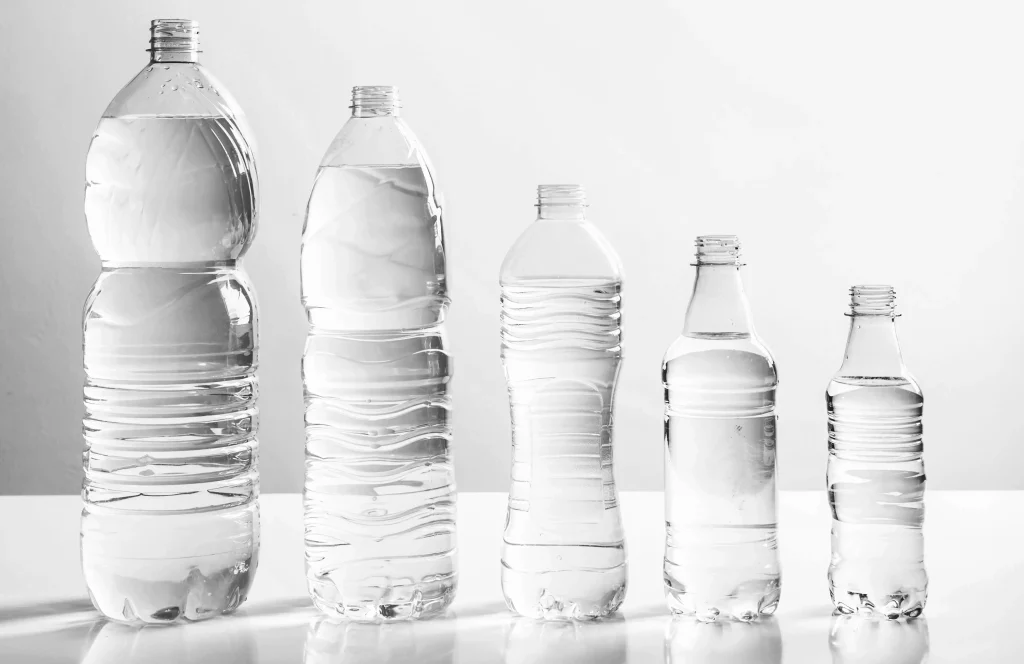
2. Reusable Water Bottles
I. The Heights of Stainless Steel Water Bottles
Stainless steel water bottles are praised for their durability and insulation capabilities. A 25-ounce stainless steel water bottle usually stands at about 11 inches tall, keeping your water chilly for your post-gym cooldown.
II. The Heights of BPA-Free Plastic Water Bottles
BPA-Free plastic bottles are a lightweight and safe choice. These commonly come in a 24-ounce size which is approximately 10 inches tall, a good fit for the side pocket of your backpack.
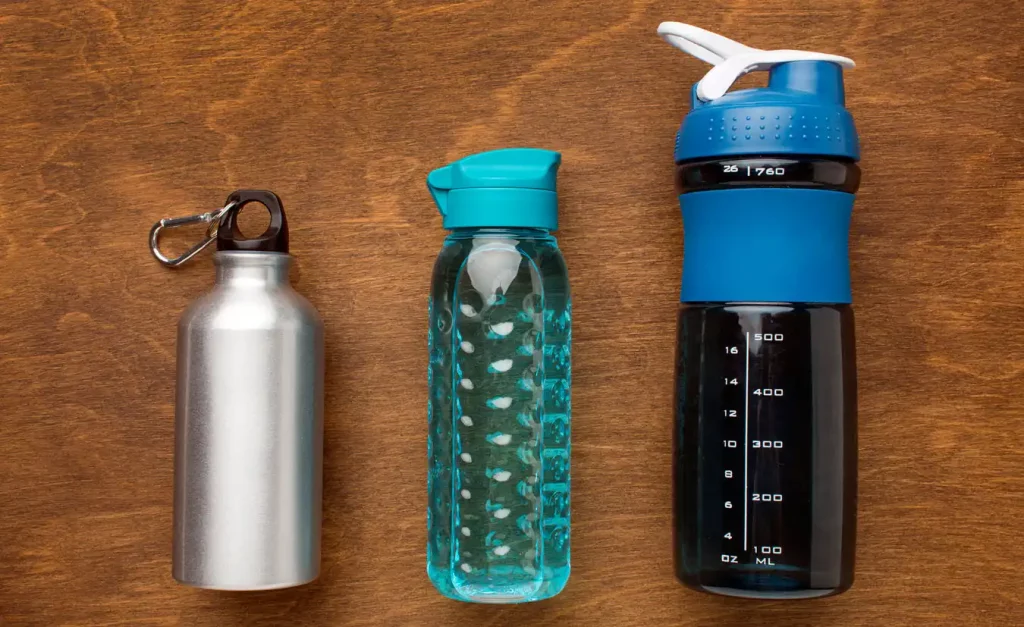
III. The Heights of Glass Water Bottles
Reusable glass water bottles combine the clean taste of glass with the reusability factor. A standard 20-ounce reusable glass bottle measures about 9.5 to 10.5 inches in height.
3. Specialty Water Bottles
I. Infuser Water Bottles
For fruit-infused water enthusiasts, an infuser water bottle is a must. These bottles are typically around 9 to 10 inches tall and have a built-in infuser for your fruit concoctions.
II. Filtering Water Bottles
Filtering water bottles purify your water on the go. They usually stand about 9.5 to 10 inches tall and can make questionable tap water taste like it's fresh from a spring.
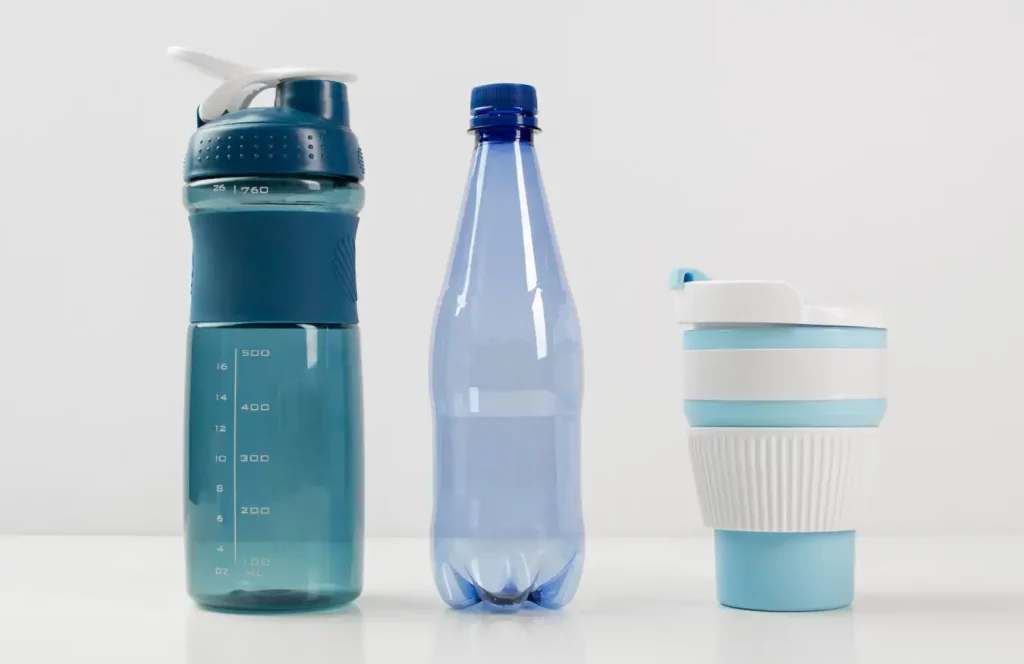
III. Collapsible Water Bottles
Perfect for the space-conscious hiker or traveler, collapsible water bottles can squish down when they're not filled. They generally extend to about 10 inches in height when filled.
4. Hydration Packs and Water Bladders
Hydration packs (Amazon) or water bladders are not your typical water “bottle,” but they are an essential hydration tool for outdoor enthusiasts. These flexible packs can hold 1-3 liters of water and their dimensions vary greatly based on capacity and brand.
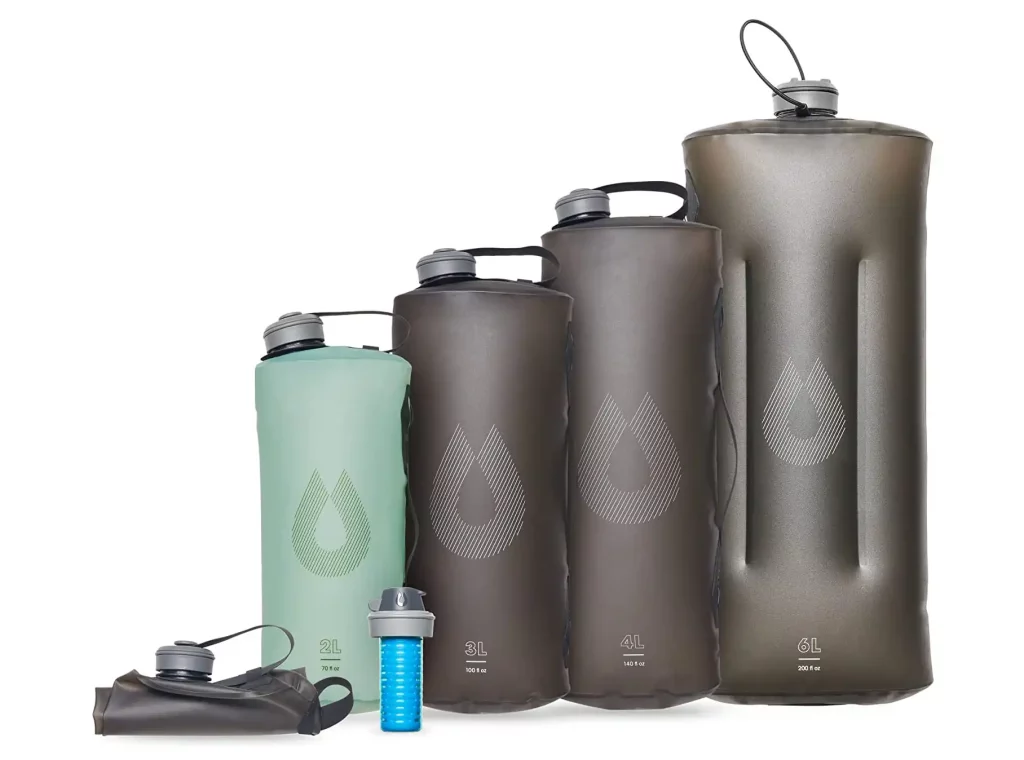
Here's a quick reference table summarizing the average heights of different types of water bottles:
| Type of Bottle | Average Height (inches) |
| Single-Serve Plastic | 7.5 – 10 |
| Single-Serve Glass | 9 – 12 |
| Reusable Stainless Steel | 11 |
| Reusable BPA-Free Plastic | 10 |
| Reusable Glass | 9.5 – 10.5 |
| Infuser | 9 – 10 |
| Filtering | 9.5 – 10 |
| Collapsible (when filled) | 10 |
Remember, these are typical heights and may vary slightly based on different brands and designs.
Different Water Bottle Sizes
Beyond the type of water bottle you choose, the size or capacity of the bottle also plays a vital role in ensuring you stay hydrated throughout the day. Let's break it down into three general categories: small, medium, and large.
1. Small Water Bottles
Small water bottles typically range from 8 to 16 fluid ounces (approximately 237 to 473 milliliters). This size is perfect for quick trips out, children, or those who prefer a lighter, more compact bottle. The height of small water bottles usually ranges from 5 to 7.5 inches.
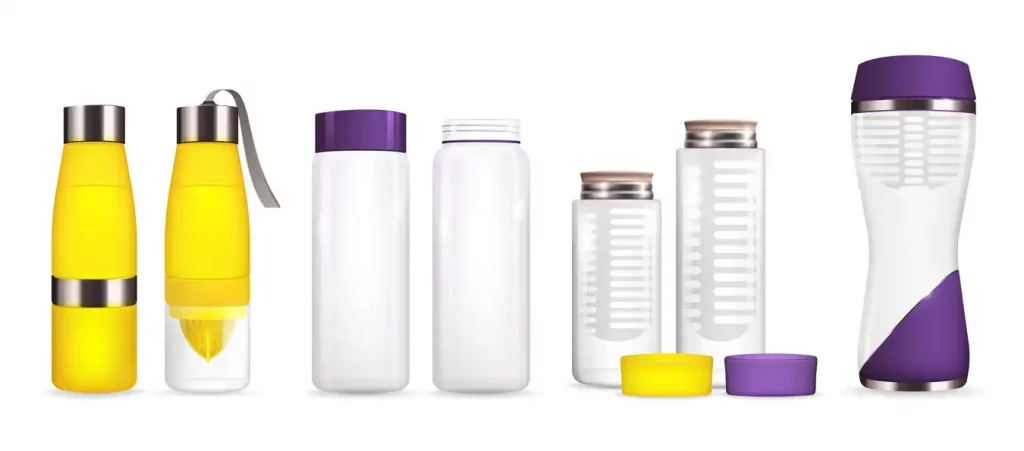
2. Medium Water Bottles
Medium water bottles hold between 17 and 24 fluid ounces (around 502 to 710 milliliters). This size is a common choice for a day at work or school. On average, these bottles stand between 8 to 10 inches tall.
3. Large Water Bottles
Large water bottles can hold 25 fluid ounces (approximately 739 milliliters) and above. For those long commutes, gym sessions, or just to ensure you're drinking enough water throughout the day, these are a great pick. They can range in height from 10 inches to a whopping 12 inches or more!
Let's summarize the different water bottle sizes in the following table:
| Size Category | Capacity (fluid ounces) | Average Height (inches) |
| Small | 8 – 16 | 5 – 7.5 |
| Medium | 17 – 24 | 8 – 10 |
| Large | 25 and above | 10 – 12+ |
Remember, these are general categories and actual sizes can vary based on the brand, style, and type of water bottle. Always check the specifications of the bottle before making a purchase.
Read more: How Many Bottles of Water is 100 oz
Factors That Can Influence the Size of a Water Bottle
The height and overall size of a water bottle can be influenced by several factors, including the material it's made from, the design of the bottle, and the manufacturer. Each of these factors can impact not just the height, but also the width and volume capacity of the water bottle.
Material
The material used in the construction of the water bottle is a key determinant of its size. Plastic bottles, for instance, can be thinner and lighter, potentially allowing for larger volumes without a significant increase in size.
On the other hand, materials like stainless steel and glass, which are denser and heavier, might necessitate a more compact design to keep the bottle manageable and portable.
Design
The design of the bottle can significantly affect its dimensions. Some bottles are designed to be slim and tall, fitting easily into bag pockets and car cup holders, while others may be shorter and wider, designed for stability and easy handling.
Additionally, the inclusion of features like wide mouths, built-in straws, or infusers can also affect the size of the bottle.
Manufacturer
The manufacturer plays a significant role in the size of the water bottle. Different brands have different standards and design philosophies. Some may focus on creating compact, lightweight bottles for athletes and hikers, while others might aim for larger, more robust designs for those who prioritize high capacity over portability.
Here's a quick summary of how these factors influence the size of a water bottle:
| Factor | Influence on Size |
| Material | Thinner materials may allow for larger volumes without significantly increasing size; denser materials may lead to smaller sizes for portability. |
| Design | Designs can range from tall and slim to short and wide, impacting the height and width of the bottle. |
| Manufacturer | Each brand has different standards and design philosophies, which can lead to variations in size. |
Remember, the ideal water bottle for you depends on your individual needs and preferences. Whether you value capacity, portability, durability, or a specific feature set, there's a water bottle out there that's just the right size for you.
Impact of Water Bottle Sizes on Daily Life
The size of your water bottle can have a more significant impact on your daily life than you might initially realize. From hydration management to travel convenience, the dimensions of your water bottle can make a big difference.
Hydration Management
First and foremost, the size of your water bottle can directly influence your hydration habits. A larger bottle can hold more water, reducing the frequency of refills and ensuring you have ample hydration throughout the day. This can be especially handy if you're often on the go, working out, or simply don't have regular access to a water source.
However, it's also important to note that larger bottles can be heavier to carry around when full. A small or medium-sized bottle, while needing more frequent refills, can be easier to handle and carry, making it a good choice for everyday use, short walks, or office desks.
Travel Convenience
The size of your water bottle can significantly affect its travel convenience. As we've touched on earlier, tall and slim designs tend to fit better in backpack pockets and car cup holders, making them ideal travel companions. Compact water bottles are generally more portable, making them more convenient for travel, whether you're commuting to work, going for a hike, or jet-setting around the globe.
On the other hand, if you're embarking on a long trip where access to clean water might be scarce, you might prefer a larger bottle despite its bulk. After all, staying hydrated is key, and a larger bottle can help ensure you have enough water to last the journey.
FAQs About How Tall is a Water Bottle in Inches
How tall is a 500ml water bottle in inches?
How tall is a 1 Liter water bottle in inches?
How tall is a 1 Liter water bottle in CM?
How tall is a 5 Liter water bottle?
How tall is a water bottle?
How tall is a 16.9 fl oz bottle?
How tall is a 20 oz water bottle?
What is the size of a normal water bottle?
Final Thoughts
As you can see, the size of a water bottle, particularly its height, is more than just a simple measurement. It's a factor that can influence everything from the bottle's portability and convenience to your daily hydration habits.
While the average height of a water bottle is around 10 inches, there's a broad range of sizes available, each with its unique benefits. Whether you need a compact bottle for easy travel, a large bottle to stay hydrated during extended trips, or something in between, there's a water bottle out there to suit your needs. So, choose wisely and stay hydrated!

